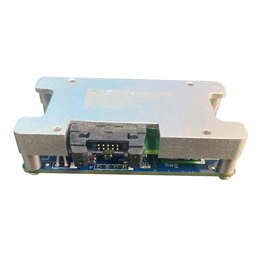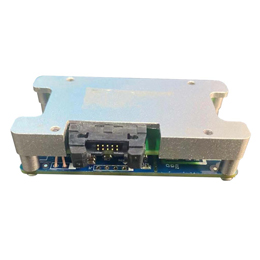Magnetometer sensors have become pivotal in modern technology, providing essential data for a variety of applications. Understanding the intricacies of these sensors can offer insights into their importance and functionality. This article delves into the world of magnetometer sensors, highlighting their applications, types, and significance in today’s tech landscape.

The magnetometer sensor-1
Physical example
Vector type magnetic sensor. Used to determine the magnitude
and direction of the geomagnetic field, that is, to determine the
component of the geomagnetic field intensity vector at the location
of the spacecraft in this system.
The magnetometer sensor does not have an outer shell, mainly a
board. If an outer shell is needed, it can be processed depending on
the other party’s requirements.

The magnetometer sensor-2
Physical example
Vector type magnetic sensor. Used to determine the magnitude
and direction of the geomagnetic field, that is, to determine the
component of the geomagnetic field intensity vector at the location
of the spacecraft in this system.
The magnetometer sensor does not have an outer shell, mainly a
board. If an outer shell is needed, it can be processed depending on
the other party’s requirements.
What is a Magnetometer Sensor?
A magnetometer sensor is an instrument that measures magnetic fields. These sensors detect magnetic field strength and direction, which is crucial for navigation systems, space exploration, and geophysical research. The magnetometer sensor plays a vital role in the accurate detection and measurement of magnetic fields, making it indispensable in various high-tech devices.
Types of Magnetometer Sensors
Magnetometer sensors come in several types, each with its unique characteristics and applications. The most common types include:
- Scalar Magnetometers: These measure the total strength of the magnetic field.
- Vector Magnetometers: These sensors measure the magnetic field’s strength and direction.
- Optically Pumped Magnetometers: Known for their high sensitivity and accuracy, they are used in scientific research and space missions.
- Fluxgate Magnetometers: Often used in navigation systems due to their reliability and precision.
Each type of magnetometer sensor offers specific advantages, making them suitable for different applications, from everyday gadgets to sophisticated scientific instruments.
Applications of Magnetometer Sensors
The versatility of magnetometer sensors extends across various fields:
- Navigation: Magnetometer sensors are crucial components in compasses and GPS systems, aiding in accurate navigation by detecting the Earth’s magnetic field.
- Space Exploration: These sensors help in mapping magnetic fields of planets and moons, providing valuable data for space missions.
- Geophysics: Magnetometer sensors are employed in studying the Earth’s magnetic properties, aiding in the exploration of natural resources and understanding geological formations.
- Consumer Electronics: Smartphones, tablets, and other portable devices use magnetometer sensors for orientation and navigation purposes.
Advantages of Using Magnetometer Sensors
Magnetometer sensors offer several benefits, making them a preferred choice in various applications:
- High Sensitivity: They can detect minute changes in magnetic fields, ensuring accurate measurements.
- Versatility: Their ability to measure both the strength and direction of magnetic fields makes them suitable for a wide range of applications.
- Compact Size: Modern magnetometer sensors are compact and can be easily integrated into portable devices without compromising performance.
Future of Magnetometer Sensors
The future of magnetometer sensors looks promising, with ongoing advancements enhancing their sensitivity, accuracy, and application scope. Innovations in sensor technology are expected to open new frontiers in space exploration, navigation, and consumer electronics, solidifying the magnetometer sensor’s role in technological evolution.
In conclusion, the magnetometer sensor is a cornerstone of modern technology, offering unparalleled accuracy and versatility in measuring magnetic fields. As technology continues to advance, the importance of magnetometer sensors in various applications will undoubtedly grow, making them an essential component in the tech-driven world.
